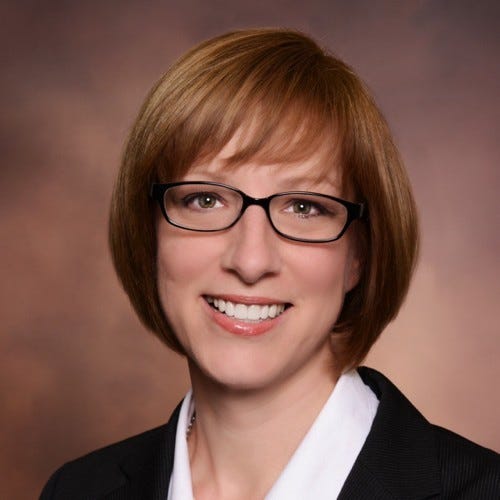Mayor has a chance of being a real progressive
Now is Johnson's opportunity to break the CPD mold
One of, it not the most misused word in government and politics is progressive. Ask three people to define what it means and you are likely to get three different answers. At its core, we should all know that it embodies forward thinking and at least a partial break from tradition. Depending on where one is in the governmental food chain progressive can have a negative connotation. After all, the vast majority of people enter government jobs because they are generally secure, don’t change much, and are long-term. The problem with that reality is they rarely lend themselves to innovative thinking-a sign of a progressive.
Mayor Brandon Johnson embraces the label progressive. In fact, he is a self-described progressive. This early in his term he hasn’t hgled a chance to demonstrate what it means. He has been hogtied by a series of issues he inheritied, and no philophical position can untangle him-unless he is willing to completely upend government.
Now, howeverl with the committee charged with recommonding its choice for the next Chicago Police Department (CPD) superintendent, the mayor has the likely opportunity to show what progressive means. He can do so by naming a woman as the next CPD superintendent. We have to say likely at this point because the civilian oversight board will have to recommend one or both of the women who have been identified among the six semifinalists.
The two are


There is no guarantee that when the Community Commission for Public Safety and Accountability hands its list of three recommended candidates to Johnson that either woman’s name will be there. Because the commission has not shared its criteria for the upcoming recommendations, the arguement should be there is no reason either woman should be absent from the list.
Whether we are talking superintendent or chief of police, Chicago’s top cop has never been a female. Chicago is hardly alone in that category. Fewer than 9 percent of the approximate 3,900 police chiefs in the U.S. are female. According to Zippia, the career research firm, the most common ethnicity of chiefs of police is White (68.8%), followed by Hispanic or Latino (13.6%), Black or African American (9.9%) and Unknown (4.2%).
Both of the female Chicago semi-finanlists certainly have the credentials to lead the 11,000-member department. Bulnes is a CPD deputy chief who was recently a finalist to become the next police chief in Evanston. Rowling is an attorney and commander of the CPD Labor Relations Division.
Bulnes’ reume is replete with commendations and honorable mentnions for houtstanding performance. Since joining the force in 1998 her record is exemplary.
Rowlings has been commander of the department’s labor relations division for the last three years. Prior to that she served as lieutenant for two years and was a sargeant for approximately 17 years before that.
Given that the department has been repeatedly and roundly criticized for continuing to miss the mark on the federal consent decree matter, Rowlings’ labor expertise might be the silver bullet to stifle the criticism.
No Black females is a puzzlement
Hopefully, right after the oversight committee makes its final recommendations to the mayor, its chairperson will explain why the list didn’t include any Black females. if it hasn’t started already, we can be assured there will be an uprising about the absence of Black women placed in contention for the job.






She falls in the average age of police chiefs/superintendents
Rowling looks really young and pleasant...I know it's stereotyping, but those two things could work against her among the "good old boys."